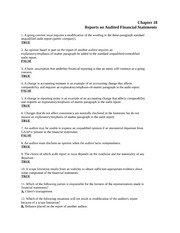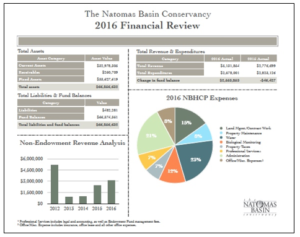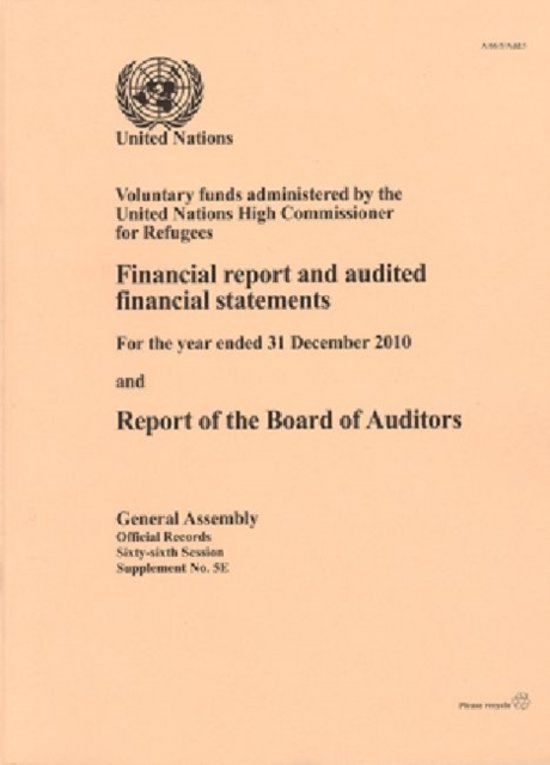How Should I Analyze a Company’s Financial Statements?
Accounting

The primary purpose for financial audits is to give regulators, investors, directors, and managers reasonable assurances that financial statements are accurate and complete. It’s important to have auditors that are external to the organization, so there is no reason for the auditors to feel pressure to stick up for the companies they audit. By having these independent auditors ‘peek under the hood’ and ‘kick the tires’ of a business, everyone who uses the financial statements can be assured that they are seeing good information. A CPA is an accountant who has passed certain examinations and met all other statutory and licensing requirements of a state to be certified by that state.
audited financial statements definition
Audits are a process where the accounting firm makes sure that a company’s financial reports are accurate and in accordance with U.S. GAAP – these audits include sampling of transactions and inventories, valuation analysis, checking adherence to professional accounting pronouncements as well as verifying elements relating to a company’s internal controls. The bigger and more complicated a company is, the more time consuming and expensive the audit is expected to be. A financial audit is an independent, objective evaluation of an organizations financial reports and financial reporting processes.Certified financial statements are required for publicly-traded companies as they play an important role in the financial markets. Companies may employ internal auditors to review financial statements, but they can only be certified by an external auditor, who is usually a certified public accountant (CPA). After the CPA firm has finished conducting an audit, it will issue an audit opinion with the audited financial statements.
Ways Debt Reduction Can Improve Your Non-Financial Life

Compiled financial statements generally range in costs from $800 – $3,500 based on the size and complexity of your company and can take 1-2 weeks to complete. As examples, lenders and creditors want financial statements they can rely on to make intelligent credit decisions. Publicly traded companies are required to produce fully audited financial statements. On the other hand, managers may be content with less stringent preparations of the reports since they are already familiar with their accounting procedures and are satisfied with the results.Corporations may contract with a smaller CPA firm for internal audits, ensuring that the official public audit will go smoothly. Audits of a company’s financial statements provide an outside look into the heart of a company’s operations. Audits ensure that financial transactions are recorded properly on company books. While smaller companies may just have one yearly audit, larger companies and public corporations may be subject to numerous audits throughout the calendar or fiscal year.
CPA VS Accountant
An unqualified opinion on an audit states that the auditors believe the company has followed all accounting rules according to the GAAP and the financial information as presented is accurate. Once an unqualified audit opinion is issued, the company’s financial statements are presented as officially audited financial statements. Public corporations face more requirements and regulations for auditing financial statements. Most companies have an annual audit conducted by a public CPA firm registered in accordance with the Securities and Exchange Commission guidelines.
When Should Your Business Get Audited Financial Statements?
Independent certified public accounting (CPA) firms are tasked with auditing companies and reviewing the application of generally accepted accounting principles — known as GAAP — in accounting departments. The main service that PCAOB registered accounting firms provide to public companies are audits (sometimes called assurance services) and reviews of the financial statements of those companies.Audited financial statements are important because they provide an outside look at accounting operations and the overall fiscal health of a publicly held company. Investors rely on these audited statements to determine whether the company is a worthwhile investment and how the company affects the overall business industry. The audited financials also show that no fraud or corruption has been detected in the company and that existing shareholder investment is protected. Audited financial statements are an important piece of information for investors and economists when judging the health of a company and the overall economy.
- The statement, which is formatted for consistent categorizing and recording of revenue and expenses, tracks cash flow and reveals the quality of a company’s business and financial operations.
- Lenders and investors often require businesses to provide audited financial statements.
- A profit and loss statement, also called an income statement, provides the details of a company’s financial activities over a specific time period.
Lenders and investors often require businesses to provide audited financial statements. A profit and loss statement, also called an income statement, provides the details of a company’s financial activities over a specific time period. The statement, which is formatted for consistent categorizing and recording of revenue and expenses, tracks cash flow and reveals the quality of a company’s business and financial operations. A certified public accountant, or CPA, performs audits using generally accepted accounting procedures. An independent, external CPA who audits a profit and loss statement certifies through his signature and final report that he has tested and validated the accounting system and financial information used to create the statement.
What is included in audited financial statements?
audited financial statements definition. Financial statements that bear the report of independent auditors attesting to the financial statements’ fairness and compliance with generally accepted accounting principles.These will provide a reasonable basis for obtaining the limited assurance required by the CPA in a review engagement. Reviewed financial statements generally range in costs from $1,200 – $5,000 based on the size and complexity of your company and can take up to 2 weeks to complete. Compiled financial statements represent the most basic level of service offered by a Certified Public Accountant with respect to financial statements. A compilation does not include performing inquiries of management or performing any analytical or other procedures ordinarily performed in a Review or Audit.However, most savvy investors won’t move forward without audited financial statements. Any company planning on having an initial public offering is required to have three years of audited financial statements before they are permitted to sell stock.The third and most complex service and level of assurance offered by a CPA are Audited financial statements. Audited financial statements are much more complex and in-depth and require a substantially larger scope of work than Compiled financial statements and Reviewed financial statements. Audited financial statements provide you, the company, with an opinion letter from the CPA, as to whether or not your financial statements are presented fairly, in all material respects, under U.S. generally accepted accounting principles.
Digital Currencies, Blockchain, and the Future of Business Transactions
An audit requires the CPA to obtain an understanding of your company’s internal controls and to assess your potential fraud risk. Audited financial statements can cost you anywhere from $6,000 and can go up dramatically depending on the size and complexity of your company’s operations. Audits can also take anywhere from 3 weeks to a number of months to complete. Compiled financial statements and Reviewed financial statements offer much more cost effective solutions and shorter time frames to complete.
Define Audited Financial Statements
Only CPAs, tax attorneys, and Enrolled Agents are able to represent a taxpayer before the IRS. Hire a private certified public accountant to perform the audit and certification of your profit and loss statement.

An external CPA has the independence and level of training required to instill confidence in the audit and certification. The U.S. Securities and Exchange Commission, lenders and investors require the use of a CPA to conduct audits instead of an accountant or other financial professional. Many companies rely heavily on investors to fund their businesses, from traditional stockholders to angel investors.In addition to preparing and reviewing financial statements, CPAs also prepare tax returns for businesses and individuals, sign tax returns, and represent taxpayers before the IRS for audits and other matters. The American Institute of Certified Public Accountants (AICPA) is the national professional association for CPAs. Reviewed financial statements are the second type of financial statement assurance provided by a CPA.The three most common certified financial statements are the balance sheet, the income statement, and the statement of cash flows. The balance sheet, also known as the statement of financial position, provides a snapshot of a company’s financial position as of a specific date, usually on December 31. They can (but usually don’t) perform bookkeeping functions, but usually, they prepare detailed financial statements, perform audits of the books of public companies, and they may prepare reports for tax purposes. But an accountant is classified by the IRS as an “unenrolled preparer,” which means they have no standing with the IRS in the matter of signing tax returns or representing clients during tax audits and other matters before the IRS.The purpose of a financial statement audit is to add credibility to the reported financial position and performance of a business. The Securities and Exchange Commission requires that all entities that are publicly held must file annual reports with it that are audited. Similarly, lenders typically require an audit of the financial statements of any entity to which they lend funds. Suppliers may also require audited financial statements before they will be willing to extend trade credit (though usually only when the amount of requested credit is substantial).
Do financial statements need to be audited?
Every business keeps records of its operations and transactions, and accountants take this information to produce four basic financial statements: a profit and loss statement, balance sheet, statement of cash flows and statement of changes in owners’ equity.
